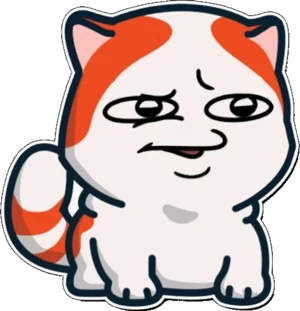Nobody is more Lebanese than the Joumblatt clan. They could not have grown out of any other environment, and perhaps Lebanon as we know it wouldn't exist without them. Before I can explain who these people are, first I have to explain what a Druze is.
Don't worry, I'll be quick. Little can be known for certain about the Druze religion so I can't take too long anyway. It is highly secretive, passed down through the generations to select initiates so even most Druze don't fully know what it's about. At various times they have pretended to be Christian or Muslim to escape persecution which muddies the waters even more. Their most famous belief known by outsiders is reincarnation. They believe that their souls will be reborn in Druze of the next generation and so on. Like so many other ethnoreligious groups in the Middle East, they do not intermarry with outsiders so they have remained distinct for a thousand years or more. Their origins are debated and that's a story for another time.
The Druze were already here when the Crusaders arrived and built Beaufort castle overlooking their lands.
The Druze mostly settled in the Jabal Druze region of modern Syria and the southern part of Mount Lebanon, where they were mixed with Christians. They were ruled by a few dominant families. The Joumblatts are believed to have migrated from Kurdistan in the 1600s and somehow become one of them. Since then they have competed with other clans like the Arslans and Shehabs, but by the mid 20th Century at least they have been undisputed kings of the Druze more or less. They also had power as feudal landowners like those who ruled over the other sects. Their control of the Druze people and territory is so complete that when another faction leader said "Walid Joumblatt could move to Brazil tomorrow and he would still be leader of the Druze" he was not exaggerating.
Mukhtara Palace, far up in the heights of the Chouf, the ancestral home of the Joumblatts.
1975
This very medieval community adapted well to modern times. Kamal Joumblatt emerged as one of the most powerful political figures in Lebanon when it gained independence. He founded what is called the Progressive Socialist Party, but it is not really a political party, just a front for the Druze so they can engage in modern parliamentary politics. His abilities were recognized in the nation as a whole, and as civil war approached he became leader of the Lebanese National Movement, an alliance of groups that were Muslim or leftist opposing the Christian-only Lebanese Forces alliance on the other side. They demanded that the Christian elites give up their stranglehold on power and give equality to Muslims. The LNM's military forces, including a fairly disciplined Druze militia, were not that impressive but politically it represented the Sunnis, Druze, and many Shi'a and Christians as well. This broad base of domestic support let him rely on the Palestinians to provide most of the firepower backing him up.
Kamal's daughter Linda el-Atrash lived in East Beirut. A few of Chamoun's goons didn't want non-Christians living there so they murdered her.
The LNM was also supported to some extent by Syria. Hafez Assad, himself a leftist Muslim revolutionary in his younger days, sympathized with them and wanted to see them carve away some power from the Christians. He imported weapons from the Soviet bloc and then passed them on to the groups in the LNM and the Palestinians. But Assad and Joumblatt did not see eye to eye on everything. Joumblatt wanted to break the back of the Maronite elite that had dominated Lebanon since the French occupation and make sure it never could rise again. Assad only wanted to weaken them, not to win a total victory. He tried to explain that in a country like Lebanon you could not win through brute military force, no matter how strong.
1980
Kamal Joumblatt was dead. He came so close to victory that he refused to compromise. Finally, with East Beirut in danger of being surrounded, the Syrians invaded to stop him and took over most of the country. In 1977 his car was ambushed on a narrow mountain road in his native Chouf region and he was gunned down. There have been many suggestions thrown out of who pulled the trigger and what exactly their motive was, but we can assume that Assad approved of the hit because Joumblatt basically was not being a team player.
Walid Joumblatt, 1978.
His son Walid succeeded him. Walid has been described as "eccentric". He was a young playboy who enjoyed the status that his father's position had given him but hardly seemed capable of filling his shoes. But he was more shrewd than he was given credit for. As soon as his formal mourning period had ended, he immediately went to Damascus to show his fealty to the man who had just killed his father. As long as Assad was the most powerful man in Lebanon, Joumblatt would be on his side.
In his later days he looked a lot like Radnor, the mentat of House Harkonnen in Dune 2.
1985
Joumblatt had gotten through the Israeli invasion practically unscathed. Recognizing that overnight the Israelis had become the dominant power, he reached out to them through the Druze community in Israel and offered free passage through his strategically vital territory. But now they were evacuating troops from his homeland, the Chouf. The Lebanese Forces were coming to massacre the Druze population until they fled, leaving the district to the Christians alone. Walid sent his own troops to reverse this process.
As soon as the Israelis pulled out of the Chouf, fighting broke out.
Joumblatt was a big player in Beirut as well. With a loyal militia and control of strategic heights overlooking the city, he proved a useful ally to the bigger factions. When the US-backed government collapsed, the PSP rushed into West Beirut along with Amal and Syria's other allies. As Amal began the War of the Camps against Fatah, these allies began to pursue their own ends in a bewildering series of betrayals and surprise attacks. Joumblatt did not rely as much on Syria as Amal did. He managed to maintain good relations with many of Syria's enemies, including Fatah, and even distant powers like the Soviet Union. This gave him some wiggle room when dealing with Assad.
The Druze tore down a Lebanese flag in Beirut and replaced it with theirs, provoking a war with Amal. West Beirut was devastated yet again. I'm not sure anybody knew what the heck they were fighting for in this one.
1990
The chaotic battles over West Beirut were now calming down as General Aoun emerged as a real threat to the entire system the militias operated in. One of his key aims early on was take control of or blockade the many small ports controlled by militias. Most of their income came from smuggling through these, and the Druze were no exception. Joumblatt now joined with the other faction leaders and Syria to face this new threat.
Jounieh in better times. This was one of the small ports used by the militias, in this case the Lebanese Forces.
The Druze did well in the Taif negotiations. The Christians, Sunnis, and Shi'a took the three most important offices in the government, but Joumblatt ended up in a position to steer large amounts of graft to the Druze and his cronies in the form of jobs and government investments. In a country where power is exerted through patronage not violence, Joumblatt was in his element.
Walid made it to the end of the war without being assassinated but there were attempts, like this one in 1982 that nearly killed him.
Epilogue
Joumblatt had a great deal of power in the new Syrian-dominated government. He was able to stretch his tentacles into bureaucracies, businesses, and real estate far from his mountain stronghold. In what can only be called a sick joke, he was made Minister for Refugees even though he had made many of them refugees in the first place by ethnically cleansing Christians from the Chouf.
If Kamal Joumblatt died because he was too rigid in his beliefs, Walid has survived because he's the ultimate pragmatist. No ordinary person could ever hope to follow all the machinations of the warlords-turned-politicans in dark smoke-filled rooms, but you could be pretty sure that whatever side he was on was winning. Partly this was because of the political and economic power he wielded, but it was mostly just because he always flipped to whatever side was stronger. He can swing back and forth like a pendulum in a matter of weeks.
Meeting with Hezbollah's Hassan Nasrallah during one of the many periods when he was temporarily Walid's bestie.
Joumblatt made one big gamble after the war, one which committed him to a certain path he couldn't back out of. In 2005, the Cedar Revolution broke out and Syria finally pulled its troops out of Lebanon. He believed that this was part of a great upheaval across the region, with the US invasion of Iraq and the growing assertiveness of its Gulf allies. In an uncharacteristic mistake, he drank the neocons' koolaid. He switched over to the anti-Syrian side and vocally denounced the Assad regime. Now, after 28 years, most of them spent allied with Syria, he suddenly was angry over his father's murder. But he had miscalculated. Far from spreading American influence across the region, the superpower was so tied up in Iraq that it lost power throughout the region, with Iran filling in part of the void. The next year Israel blundered its way into a major war with Hezbollah that it was not prepared for and suffered a humiliating defeat. In 2008 Joumblatt made a bold attempt to seize the fiber optic network that Hezbollah used to communicate with its troops. He didn't have the force to back it up. Hezbollah hardly even needed to fight as its allies trounced the PSP and Sunni militias in a few days. Later on the Arab Spring and the Syrian Civil War seemed to offer opportunities but in the end the alliance of Hezbollah, Syria, and Iran remains in a dominant position over Lebanon.
Joumblatt with Bashar al-Assad, 2010. You didn't think they'd stay mad, did you? They reconciled somewhat when it was clear that Hezbollah couldn't be defeated.
Joumblatt has now retired to smoke hashish and shitpost on Twitter from his mountain stronghold. There are different ways you could judge him. His scheming and backstabbing only made the civil war worse for the nation and his corruption in peacetime has kept it impoverished. But if you judge him as the leader of the Druze, it's hard to say anyone could have done better. He guided his tiny sect of a few hundred thousand people surrounded by dangerous enemies on all sides through a generation of war and crisis. In the end they were exactly where they started, still living in their ancestral homeland. Many other factions involved in the Lebanese Civil War can only wish they had broken even.
Walid and Oscar.





















Jump in the discussion.
No email address required.
Okay now you're just making up names/reading from your fantasy manuscript
manuscript
Jump in the discussion.
No email address required.
I wouldn't have picked something that's so easily confused
that's so easily confused  with "Jews", especially since they live right
with "Jews", especially since they live right  next to each other.
next to each other.
Jump in the discussion.
No email address required.
/r/worldbuilding fail
Jump in the discussion.
No email address required.
More options
Context
More options
Context
More options
Context